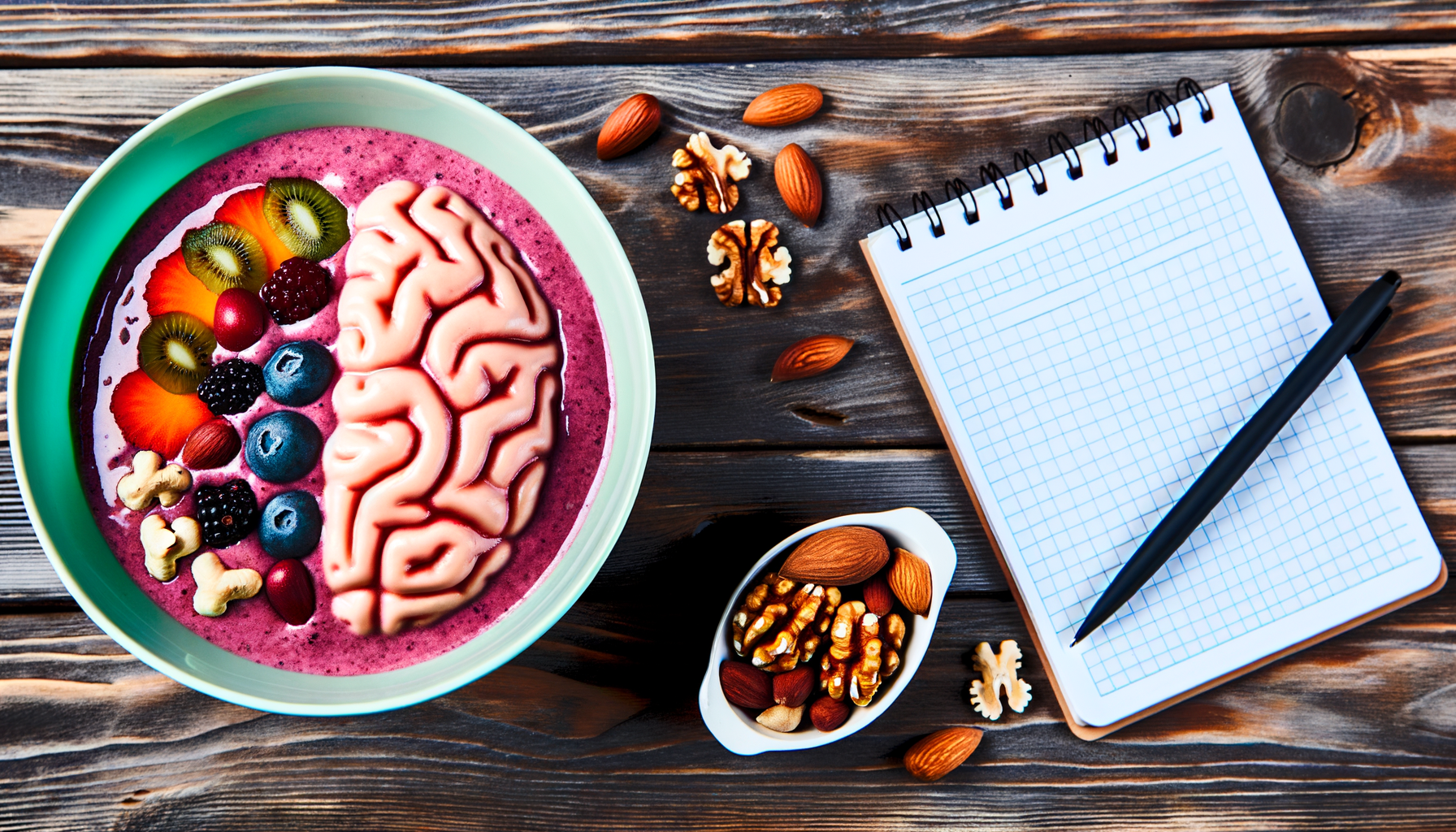The Intersection of Calorie Tracking and Brain Health
When it comes to maintaining overall health, the focus often lies on physical well-being, but the impact of our diet on brain health is just as crucial. Calorie tracking, a common practice for weight management, can have both direct and indirect effects on cognitive function and mental performance. Here, we delve into the intricate relationship between calorie tracking, nutritional choices, and brain health.
Why Calorie Counting Alone May Not Be Enough
Calorie counting is a well-established method for weight loss, but it often falls short in the long term. According to the CDC, while many adults attempt to lose weight through low-calorie diets, only about 20% succeed in maintaining weight loss over the long term.
The reason for this limited success lies in the complexity of how our bodies process food. Food is not just fuel; it is also information that influences our metabolic health and hormone regulation. Different types of food can trigger varying hormone responses, which in turn affect how our bodies store fat and manage energy.
The Role of Nutritional Quality in Brain Health
A healthy diet rich in essential nutrients is vital for optimal brain function. Foods high in omega-3 fatty acids, such as fatty fish like salmon, mackerel, and sardines, support neurotransmitter function and reduce inflammation in the brain, enhancing focus, memory, and overall cognitive abilities.
Complex carbohydrates from whole grains like brown rice and quinoa provide a steady energy supply to the brain, while fruits and vegetables offer antioxidants that protect against oxidative stress. Avocados, with their monounsaturated fats, promote healthy blood flow to the brain, improving concentration and cognitive function.
Impact of Blood Sugar and Insulin on Cognitive Health
The type of calories consumed can significantly impact blood sugar levels and insulin response. Foods that cause significant blood glucose spikes can lead to increased insulin release, which may promote fat storage and negatively affect metabolic health. In contrast, diets that limit carbohydrate intake and reduce blood glucose spikes have been shown to have beneficial effects on weight loss and risk factors for heart disease.
Continuous glucose monitoring (CGM) can provide insights into how different foods affect blood sugar levels, offering a more nuanced approach to calorie tracking. By focusing on foods that maintain stable blood sugar levels, individuals can support their body’s fat-burning processes and improve overall metabolic health.
Mealtime Strategies for Optimal Brain Function
Adopting intelligent eating habits is crucial for maintaining cognitive function and productivity throughout the day. Starting with a nutritious breakfast that includes whole grains, protein, and healthy fats sets the stage for a day of optimal brain performance. Examples include oatmeal with nuts and berries or a vegetable omelette with whole grain toast.
Incorporating regular, balanced meals and healthy snacks between meals is also vital. Snacks such as nuts, seeds, yoghurt, or fresh fruit provide sustained energy and help prevent mid-afternoon slumps. Hydration is equally important, as dehydration can negatively impact cognitive performance and lead to fatigue and decreased productivity.
The Benefits of Intermittent Fasting on Brain Health
Intermittent fasting (IF) has been studied for its potential benefits on brain health and cognitive function. While there is no clear evidence of a positive short-term effect on cognition in healthy subjects, IF has shown promising results in animal models and clinical studies for conditions such as epilepsy, Alzheimer’s disease, and multiple sclerosis.
IF leads to lower levels of circulating insulin, enhancing insulin sensitivity and neuroplasticity. The production of ketones during fasting periods provides an alternative energy source for the brain, promoting mitochondrial biogenesis, synaptic plasticity, and cellular stress resistance. These mechanisms can contribute to improved cognitive function and protection against metabolic and oxidative stress.
Moving Beyond Calorie Counting: A Holistic Approach to Nutrition
Given the limitations of calorie counting alone, it is essential to adopt a more holistic approach to nutrition. This involves considering the quality of the food consumed rather than just the calorie content. By focusing on whole, nutrient-dense foods and avoiding processed and high-sugar foods, individuals can support both their physical and cognitive health.
Tools like the Calorie Calculator Cloud can be useful in tracking calorie intake, but they should be used in conjunction with an understanding of the nutritional value of the foods being consumed. For those looking to transition away from calorie counting, resources such as guides on stopping calorie counting can provide practical steps towards a more balanced and sustainable approach to nutrition.
Real-World Examples and Case Studies
Several studies and real-world examples illustrate the benefits of a nutrition-focused approach to brain health. For instance, diets rich in omega-3 fatty acids have been shown to improve cognitive functions such as memory, attention, and mood. The inclusion of foods like blueberries, which are packed with antioxidants, can protect the brain from oxidative stress and enhance overall cognitive performance.
In clinical settings, patients with metabolic disorders have benefited from low-carbohydrate diets that reduce blood glucose spikes and promote stable insulin levels. These dietary changes have led to improved weight loss outcomes and reduced risk factors for heart disease.
Conclusion and Next Steps
In conclusion, while calorie tracking can be a useful tool for weight management, it is only one part of the equation when it comes to maintaining optimal brain health. By focusing on the quality of the food consumed, managing blood sugar levels, and adopting holistic eating habits, individuals can support their cognitive function and overall well-being.
For those looking to enhance their brain health through nutrition, here are some key takeaways:
– **Focus on whole, nutrient-dense foods**: Include fruits, vegetables, lean proteins, and healthy fats in your diet.
– **Manage blood sugar levels**: Choose foods that maintain stable blood sugar levels to support metabolic health.
– **Consider intermittent fasting**: IF can have beneficial effects on insulin sensitivity and neuroplasticity.
– **Stay hydrated**: Proper hydration is essential for optimal brain function.
By integrating these strategies into your daily routine and using tools like the Calorie Calculator Plans to guide your nutritional choices, you can fuel your brain for success and maintain peak cognitive performance.
Remember, a healthy diet is the foundation of a happy and productive brain. So, take the first step today towards a more balanced and nutritious lifestyle.








